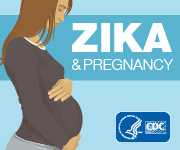NBDPS Public Access Procedures

Data from the National Birth Defects Prevention Study (NBDPS) are not released to the public. Qualified researchers can be granted access to NBDPS data for analysis through collaboration with one of the Centers for Birth Defects Research and Prevention. The following information provides the procedure for applying for access to NBDPS data.
About the NBDPS
The NBDPS is one of the largest U.S. studies that looks at risks and potential causes of birth defects. The NBDPS explores information from babies born between 1997 and 2011. Mothers of more than 30,000 babies with birth defects and 10,000 babies without birth defects took part in this study, and over 300 papers have been written using data from the NBDPS. Enrollment in the study ended in March 2013, but researchers continue to analyze this rich source of information on birth defects.
Accessing the NBDPS Data
In order to access the data for analysis purposes, individuals must meet the appropriate requirements for data access to guarantee the confidentiality of participants and ensure that data are used in accordance with their consented purposes. Interested researchers should follow the protocol detailed in the steps described below.
-
Step 1 – Review list of NBDPS publications
- To date, over 300 papers have been written and published using data from the NBDPS. Before applying for data analysis access, please review this list. Proposed analyses that overlap with previously published data will be denied.
-
Step 2 – Identify Center for collaboration
- All proposed analysis projects must be sponsored by one of the Centers for Birth Defects Research and Prevention (CBDRP). If a Center is not indicated on the proposal, it will be routed to the CDC Center.
-
Collaborating Centers for Birth Defects Research and Prevention:
- Arkansas
Principal Investigator: Charlotte Hobbs, MD, PhD
Contact: ar@nbdps.org
Research focus: Genetics, gene-environment interactions, congenital heart defects - California
Principal Investigators: Gary Shaw, DrPH & Suzan Carmichael, PhD
Contact: ca@nbdps.org
Research focus: Diet, obesity, drugs, alcohol, stress, pollution, job, genetics - Georgia (CDC)
Principal Investigator: Sarah Tinker, PhD
Contact: ga@nbdps.org
Research focus: Medication use during pregnancy, fertility treatments, novel statistical methods - Iowa
Principal Investigator: Paul Romitti, PhD
Contact: ia@nbdps.org
Research focus: Smoking, alcohol use, genetics, medications, chemicals and toxins - Massachusetts
Principal Investigator: Mahsa Yazdy, PhD
Contact: ma@nbdps.org
Research focus: Medication use during pregnancy - New York
Principal Investigator: Marilyn Browne, PhD
Contact: ny@nbdps.org
Research focus: Maternal illness and medications, environmental and genetic risk factors - North Carolina
Principal Investigators: Andrew Olshan, PhD & Robert Meyer, PhD
Contact: nc@nbdps.org
Research focus: Genes and environment, diet, obesity and exercise, and work exposures - Texas
Principal Investigators: Mark Canfield, PhD & Peter Langlois, PhD
Contact: tx@nbdps.org
Research focus: Race/ethnicity, genes, diet, occupational and environmental factors - Utah
Principal Investigators: Marcia Feldkamp, PhD & Lorenzo Botto, MD
Contact: ut@nbdps.org
Research focus: Genetics, maternal infections, congenital heart defects
- Arkansas
-
Collaborating Centers for Birth Defects Research and Prevention:
- All proposed analysis projects must be sponsored by one of the Centers for Birth Defects Research and Prevention (CBDRP). If a Center is not indicated on the proposal, it will be routed to the CDC Center.
-
Step 3 – Complete Collaboration Request Form
-
Step 4 – Submit form to the identified collaborating Center
- Collaboration Request Forms should be emailed to the Principal Investigator of the identified collaborating Center. Requests are reviewed by the CBDRP Data Sharing Committee, which reviews requests based on the following criteria:
- No overlap with an existing NBDPS research project
- Scientific merit is designed to benefit public health
- Lack of conflicts of interest, including financial, social, or personal, that preclude the objective use of NBDPS data for the consented purposes
- Researcher qualified to conduct the proposed research, including adequate training and adequate resources to comply with the requirements of the Confidentiality and Data Use Oath
- Collaboration Request Forms should be emailed to the Principal Investigator of the identified collaborating Center. Requests are reviewed by the CBDRP Data Sharing Committee, which reviews requests based on the following criteria:
Resources
NBDPS Computer Assisted Telephone Interview (CATI) 1997–2005
NBDPS Computer Assisted Telephone Interview (CATI) 2006–2011
- Page last reviewed: August 30, 2016
- Page last updated: August 30, 2016
- Content source:



 ShareCompartir
ShareCompartir